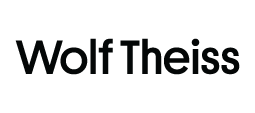Since early 2024, Hungarian legislative efforts have brought about several updates to consumer protection regulations. Ranging from novelties in consumer complaints and related processes, increased consumer protections fines, expanded rights of the consumer protection and competition authority to an unexpected obligation imposed on e-commerce providers to include the local postal delivery provider as a delivery option, changes to the sector have been diverse.
Complaint handling and conciliation processes
As of 1 January 2024, the powers of the Consumer Conciliation Boards were generally extended, imposing a mandatory obligation on all businesses to be bound by the decisions of the Consumer Conciliation Boards, even in the absence of a formal submission of the business to such processes. This new rule applies to all disputes with a value below HUF 200,000.
The changes have had an effect on the format of hearings as well, since from now on hearings will be held primarily in person, unless requested otherwise.
Increased consumer protection law fines
As of 1 March 2024, businesses can expect significantly higher penalties in cases of consumer protection law violations. The increase affects both the minimum and the maximum fine. However, there are certain cases where the maximum fine has increased by up to 50% or more.
The newly increased fine ranges are as follows:
For businesses with an annual net sales revenue in excess of approx. EUR 255,000 and not considered small and medium-sized enterprises:
- Approx. EUR 2,600 or up to 5% per cent of the annual net sales revenue capped at a maximum of approx. EUR 1,655,000;
- If the infringement concerns the life, health and physical integrity of consumers, or if it results in substantial financial impact to a broad range of consumers, the fine is between approx. EUR 5,000 and capped at a maximum of approx. EUR 7,630,000.
- In cases of repeated infringements that have occurred within a 3-year period at businesses providing e-commerce services:
- the amount of the fines may increase further between approx. EUR 5,000 and 5% per cent of the annual net sales revenue, capped at a maximum of approx. EUR 7,630,000, or
- between approx. EUR 10,000 and capped at a maximum of approx. EUR 12,670,000 if the infringement concerns the life, health, physical integrity or substantially impacts the financial status, of a broad range of consumers.
Expanded powers of the authorities
Since 1 March 2024, the competency of both the Hungarian Consumer Protection Authority (HCPA) and the Hungarian Competition Authority (HCA) has expanded with the ability to render certain electronic data temporarily inaccessible, effectively even shutting down complete websites in cases of serious breaches of consumer rights.
Webshops’ obligation to offer the MPL services
Following a recent amendment to Hungarian postal regulations, it is now mandatory for online retailers and online store operators that maintain webshops to offer the option of parcel delivery from the Hungarian Postal Service (MPL) as a delivery solution in addition to the options already available.
The amended regulation will come into effect on 28 March, however, apart from a dedicated site maintained by MPL offering guidance on how to ensure compliance with the soon-arriving changes, (link: https://www.posta.hu/webaruhaz_jogszabaly_gyik/kormanyrendeletnek_valo_megfeleles), competent authorities have still yet to issue any distinct set of clarificatory notes on the exact rules applicable for businesses.
What appears to be clear is that regardless of whether businesses choose to enter into a separate arrangement with MPL or offer services based on their general terms and conditions, the option to choose this local provider will have to be made available to all consumers purchasing goods online in Hungary.
Suggested actions
Businesses are strongly advised to update their general terms and conditions to reflect the above changes, especially those procedural updates concerning the Consumer Conciliation Boards and the information obligation regarding the MPL’s postal delivery services and corresponding costs.
By Peter Ihasz and Miriam Fuchs, Senior Associates, and Dorottya Mercsek, Associate, Wolf Theiss


